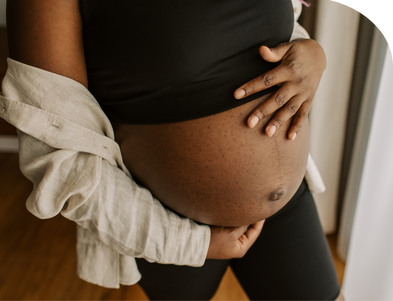

The Center for Anti-Racism and Community Health (ARCH) and Bryd Barr Place are launching the Good Black Birth Initiative. The two-year project, funded by Byrd Barr Place, aims to advance Black Birth Equity and address persistent disparities in maternal and infant health outcomes experienced by Black women across Washington state.
From 2014-2022, the Washington Department of Public Health reported that the rates of pregnancy-associated deaths per 100,000 live births were 2.5 times higher for Black people compared to non-Hispanic white people. Dr. Rachel Chapman, ARCH Scholar in Residence and professor of Anthropology and adjunct professor of Global Health, who will assist in leading the project explained the following: “This public health evidence of racial inequities measured in maternal and infant suffering and death is longstanding and deeply systemic, here in Washington and across the US. We know 99% of maternal mortalities are preventable, and that most industrialized countries, like Norway, Switzerland, Netherlands and Japan, have achieved that level of prevention (Gunja et al. 2024). That means this is not about pathological Black communities, people, bodies or births. It is about systematic lack of access to basic resources, and institutional harm and negligence when there is access.
A “good Black birth” is one that centers Black Authoritative Knowledge (Chapman et al. 2024), which means centering Black parental, familial, ancestral, and embodied knowing to direct birth setting, decisions and flow.
Dr. Chapman further explained, “We also know that there are beautiful, safe, good Black births. A “good Black birth” is one that centers Black Authoritative Knowledge (Chapman et al. 2024), which means centering Black parental, familial, ancestral, and embodied knowing to direct birth setting, decisions and flow. It means fostering Black family support, peace, dignity, and community traditions. It means safeguarding Black agency, autonomy, and confidence to enact life-giving and life-saving self-advocacy and self-care. A good Black birth “mitigates, resists and undoes” (Geronimus 1994) the harm and trauma of anti-Black racism, and promotes healing and joy in Black play, sexuality, pregnancy, birthing, and futures.
So, ending racial/ethnic maternal health disparities requires first and foremost universal, quality health care coverage throughout perinatal and post-partum caring wherever Black births occur. And it requires a new paradigm reckoning with the dangers that exposure to healthcare itself can pose to Black parents, infants, and families.
The U.S. House vote recently voted to approve billions of dollars in Medicaid cuts nationwide which could end coverage for about 200,000 Washingtonians who rely on Apple Health, including 45% of all perinatal and birth care which is covered by Medicaid. The collective voice and action of this Initiative is needed now more than ever. That is what the Byrd Barr Place Good Black Birth Initiative is all about.”

Through a combination of public data analysis, community surveys, interviews, and other community-engaged methods, the Good Black Birth Initiative seeks to synergize leaders in the birth equity space to co-create the first collective vision of a “good Black birth” and supporting research plan involving a diversity of thought partners who work “upstream” to “downstream” to drive policy, practice, and resource allocation. Thought partners represent health systems, community-based organizations, and individual birth workers, all of whom contribute to Black Birth Equity efforts.
In the short-term, the initiative plans to develop a framework to guide community-based data collection to capture real stories and lived experiences of Black birthing people and their families. These stories will serve as a launch point to drive policy change, elevate community leadership in advocacy efforts, and lay the foundation for lasting community-rooted infrastructure. “Our goal is to replace deficits narratives with community-designed and tested solutions from community-controlled data that intentionally integrates ancestral ways of knowing,” said Wendy Barrington, Director of ARCH. “Not only will this amplify community strengths and wisdom, but will also provide a new set of strategies, measures, and outcomes most relevant for ensuring a “good Black birth” and advancing Black birth equity in Washington state.”